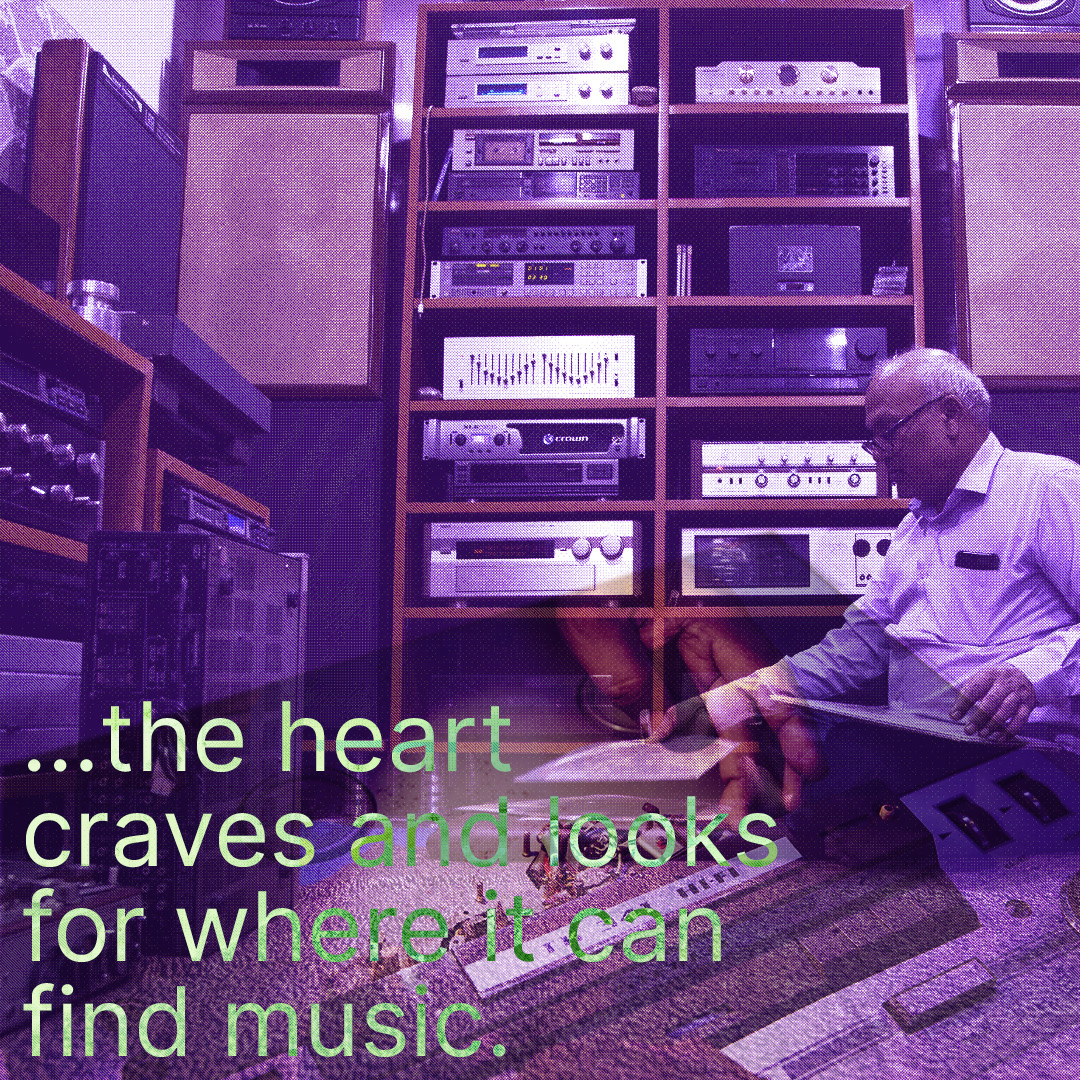Khan Sa’ab’s Listening Room
As with everywhere, Delhi, India, is a city spilling with unexpected encounters and surprising stories at every nook and corner. Approximately five years back, while searching for tape machines for my growing interest in vintage sound technology, I stumbled upon Inspector Khan and his passionately assembled archive, after which there was no looking back. What I discovered in my conversations with him was his unmatched penchant for music, a love for listening, and a deep interest in the histories of sound technology. This kind of enthusiasm isn’t something you come across every day in Delhi, even in its most musical corners.
While Inspector Khan used to be out in the field during the day, dealing with delinquents and law offenders as part of the Delhi Police Crime Branch, he had another side to him that was known to only a few. In parallel, he was busy collecting old records, fixing up audio equipment and vintage sound gear, and taking care of a growing archive of devices, gadgets, tape machines, microphones, radios, amplifiers, and more – some of which were originally made for government use back in the day and held very limited access. Post-retirement, he has created a state-of-the-art listening room in his home, where he spends his days – at times alone, and often with fellow music aficionados with whom he shares his countless stories, memories, and love for analog listening over cups of tea. One of his most cherished activities now is to enjoy his decades of musical collections on vinyl players in this special room that he created for this purpose.
This film has been composed of one of the many interesting conversations that unfolded with him during one of my visits to his home. He speaks of growing up listening to songs on Vividh Bharti and Radio Ceylon1 in the 1950s and 1960s, before he moved into collecting music. As Khan Sa’ab shares his fascinating journey, experiences, and challenges that he had to navigate along the way, we get to hear some of his most-loved songs on the same speakers and players that he has been preserving over the years, giving us a glimpse into his intimate world of sound and music. This is an elsewhere, a sound den away from the din and travails of the city, that Inspector Khan has built and nourished with utmost devotion and delightfully shares with a few co-listeners now.
- 1. Radio Ceylon was the Sri Lankan channel that India turned to when AIR banned film music in 1952 (Bikhchandani 2022). The Vividh Bharati Service of All India Radio was conceptualized to combat Radio Ceylon in 1967.
List of References
This video is part of the virtual exhibition «Norient City Sounds: Delhi», curated and edited by Suvani Suri.
Project Assistance: Geetanjali Kalta
Graphics/Visual Design: Upendra Vaddadi, Neelansh Mittra
Audio Production: Abhishek Mathur
Video Production: Ammar
Biography
Shop

Published on September 29, 2023
Last updated on April 02, 2024
Topics
How can sound & music be preserved and at the same time evolve in line with the present?
Can a bedroom producer change the world? How do artists operate in undersupplied conditions?
A generative practice that promotes different knowledge. One that listens is never at a distance but always in the middle of the sound heard.
How does the artits’ relationship to the gear affect music? How to make the climate change audible?
Special
Snap
